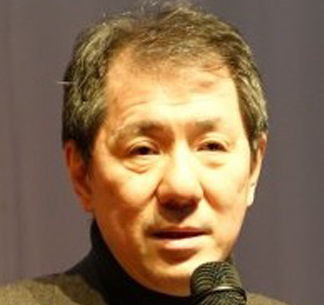Last December, China celebrated 15 years of World Trade Organization membership. Their ascension to the WTO took roughly 15 years for Chinese officials to negotiate, and by all accounts, their efforts have paid off. Exports have increased nearly tenfold in the new millennium, as China has expanded its role in a more integrated global economy. WTO membership has also opened Beijing to intense scrutiny and numerous complaints from other member nations that may appear vindictive – only two of the 18 completed cases against China have come down against the complainants. In practice, though, Beijing has been able to thread the needle, complying with most WTO rulings while reaping the benefits of its membership.
Scott Kennedy of the Center for Strategic and International Studies points out that China’s pattern of compliance with WTO arbitration rulings, while technically genuine, rarely conflicts with policy objectives. He cites the examples of rare earth mineral export limits and wind power subsidies as areas in which desirable outcomes had been reached before China was ruled against. In other instances, like the successful 2012 complaint that China unfairly excluded foreign payment services from its domestic market, compliance has not resulted in any appreciable market change. Beijing, then, has seen a net gain in its adherence to the WTO’s legal framework.
The Trump administration is less enamored with global institutions, the WTO among them. The nominee for U.S. Trade Representative, Robert Lighthizer, has a history of criticizing constraints the organization places on American policymakers. As a trade attorney accustomed to defending various American industries from unfair foreign trade practices, Lighthizer is now in a position to effect institutional change or at least to delegitimize the WTO’s authority. One avenue would be to take flagrantly prohibited action, knowing that the current case backlog would delay arbitration for years. But Lighthizer has hinted in the past that an uncooperative WTO may be worth leaving. In a 2007 debate with the Cato Institute’s Daniel Ikenson, Lighthizer concluded that the only answers to persistent judicial activism at the WTO were “to gain consensus to change the agreements, or simply withdraw from the system.”
A diminished WTO role in enforcing global trade could mean trouble for Chinese exports, whether tariffs are implemented or not. Investors considering their supply chains for manufacturing are not only price-sensitive, but also risk-averse. A 2016 paper by Federal Reserve Board of Governors economist Justin Pierce and Yale School of Management professor Peter Schott reveals the significance of risk aversion in China’s export growth during the early 2000s. They find that while tariffs remained unchanged with the passage of the U.S.-China Relations Act of 2000 that granted China permanent normal trade relations, it assuaged fears of any future tariff hikes. Much of China’s success in bilateral trade, therefore, can be attributed to a change in legal codification instead of policy.
The consequences of the U.S.-China Relations Act of 2000 for American industry – above all, the decreased employment in sectors that had previously faced potential tariff hikes – were beyond the comprehension of contemporary American lawmakers. In hindsight, it seems intuitive that making existing low tariff rates permanent and paving China’s way into the WTO might lock in the higher-risk, longer term investments that would pressure American industries. Perhaps equally intuitive is the current concern that unpoliced, less predictable trade relations would add new risks to the type of investments that facilitate global supply chains. Is it worth sinking money into an infrastructure built around sourcing computer parts from ten different countries to save a percent here or there when the WTO and other authorities can no longer guarantee the endurance of that margin? In the absence of enforceable trade rules, a supply chain’s risk is proportional to its geographic complexity.
In China’s case, the basic danger of losing supply chain expansion is compounded by the fact that the Chinese manufacturing sector is successfully moving from the production of low cost goods to more capital-intensive intermediary goods. Graduation from cheap wares to high-tech components brings higher paying jobs to China, but the associated supply chain risks are greater as well. Apple might think twice about keeping or expanding its Chinese iPhone assembly given even the slightest hint of untethered trade war; such a shock to the supply chain of such a valuable, high-volume product would be catastrophic, and well worth moving elsewhere to prevent.
It would be prudent, considering these issues, for Beijing to support the status quo for global trade. That may mean earnest responses to future arbitration, further contributions to WTO leadership, or pushing ahead with initiatives like the Environmental Goods Agreement. However, none of these actions could counter the potential damage that the Trump administration and Robert Lighthizer could unilaterally inflict on China’s export industries. Even barring new trade friction or tariffs, China has perhaps set its own course for trouble in the near future; strict cybersecurity laws will throttle the flow of proprietary data, a significant and rapidly growing component of global trade. In particular, Chinese data localization rules would prevent the seamless operation of the global data supply chains that have sprung up in recent years.
President Xi has expressed a desire to uphold and develop the world order. China’s current position with regard to the WTO, perhaps in opposition to Donald Trump’s White House, suggests that Xi is more a pragmatist than an ideologue. China’s trade success with the United States and the European Union was about more than the relative height of trade barriers – it’s owed in no small part to the status China received as a dependable member of the global economic community. The onerous tasks of preserving that community’s integrity and reminding others of its usefulness may now fall on the Chinese to carry out. If Xi is up to the challenge and prevents a breakdown in global trade, China will have will have saved more than its own skin.


